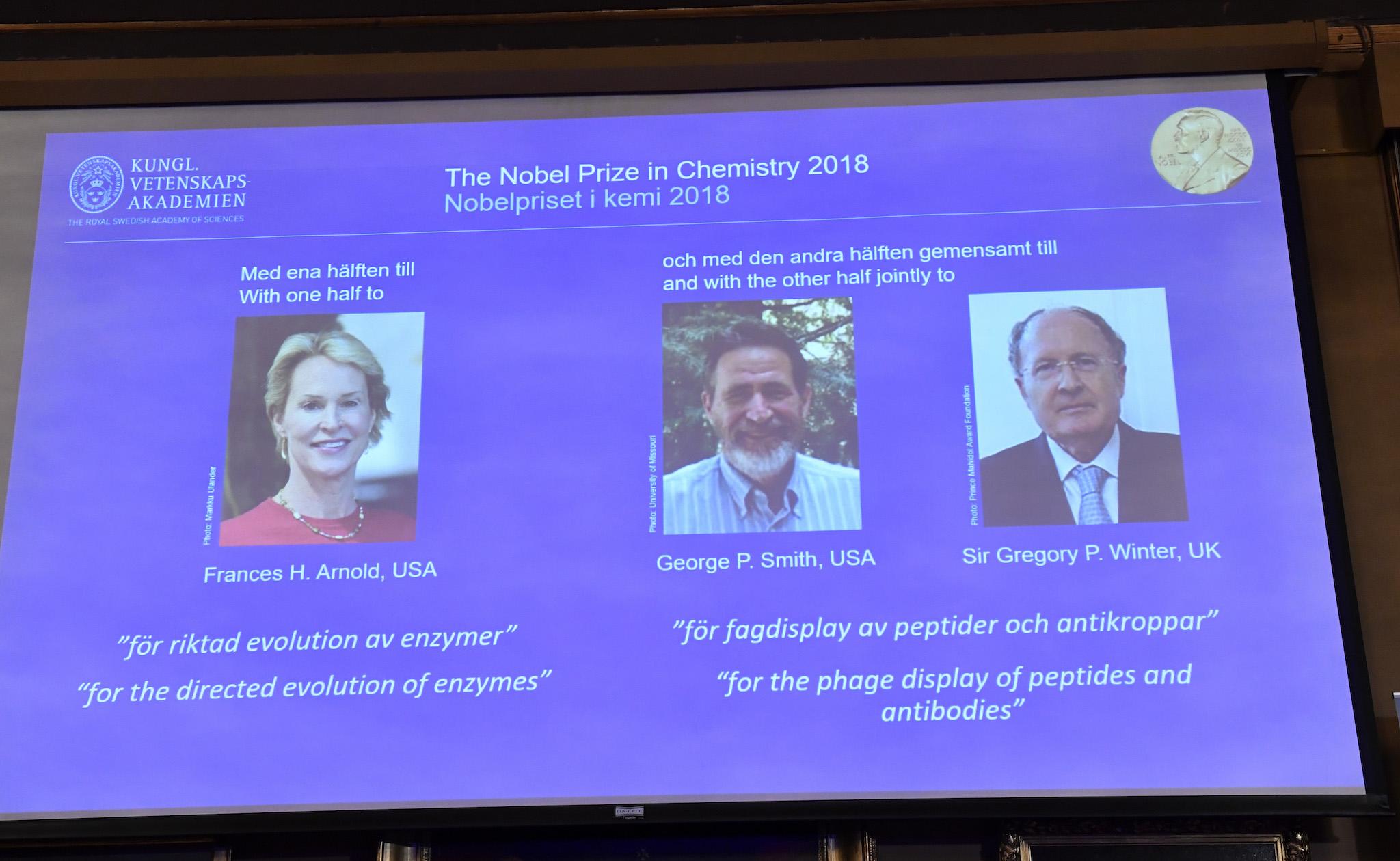Nobel prize for Chemistry winners used evolution to cure some of the world's worst problems

Your support helps us to tell the story
From reproductive rights to climate change to Big Tech, The Independent is on the ground when the story is developing. Whether it's investigating the financials of Elon Musk's pro-Trump PAC or producing our latest documentary, 'The A Word', which shines a light on the American women fighting for reproductive rights, we know how important it is to parse out the facts from the messaging.
At such a critical moment in US history, we need reporters on the ground. Your donation allows us to keep sending journalists to speak to both sides of the story.
The Independent is trusted by Americans across the entire political spectrum. And unlike many other quality news outlets, we choose not to lock Americans out of our reporting and analysis with paywalls. We believe quality journalism should be available to everyone, paid for by those who can afford it.
Your support makes all the difference.The Nobel Prize in Chemistry has been given to three scientists who used evolution to solve some of the world's worst problems.
The three winners all harnessed the principles that power evolution – genetic change and selection – to create new chemical processes that help cure disease, create new materials and save lives.
"The power of evolution is revealed through the diversity of life," the committee wrote. "The 2018 Nobel Laureates in Chemistry have taken control of evolution and used it for purposes that bring the greatest benefit to humankind.
"Enzymes produced through directed evolution are used to manufacture everything from biofuels to pharmaceuticals. Antibodies evolved using a method called phage display can combat autoimmune diseases and in some cases cure metastatic cancer."
Evolution has meant that the world is full of a huge variety of different forms of life, because it has allowed organisms to respond to the chemical problems that surround them in their environment. The three scientists who won used those same processes to solve the problems facing humans.
Those include the promotion of a greener chemicals industry, the production of useful new materials, manufacturing sustainable biofuels as well as mitigating diseases and saving lives.
Half of the 9-million-kronor or roughly $1 million prize was designated for Frances Arnold of Caltech in Pasadena for work that has led to the development of new biofuels and pharmaceuticals.
The other half of the prize will be shared by George Smith of the University of Missouri and Gregory Winter of the MRC Laboratory in Cambridge. They were honored for "phage display of peptides and antibodies."
The first pharmaceutical based on Winter's work was approved for use in 2002 and is employed to treat rheumatoid arthritis, psoriasis and inflammatory bowel diseases, the academy said.
Reached by The Associated Press Wednesday, Smith credited others for the work that led to his breakthrough.
"Very few research breakthroughs are novel. Virtually all of them build on what went on before. It's happenstance. That was certainly the case with my work," he said. "Mine was an idea in a line of research that built very naturally on the lines of research that went before."
Smith said he learned of the prize in a pre-dawn phone call from Stockholm. "It's a standard joke that someone with a Swedish accent calls and says you won! But there was so much static on the line, I knew it wasn't any of my friends," he said.
The medicine prize was awarded Monday to American and Japanese researchers. Scientists from the United States, Canada and France shared the physics prize Tuesday.
On Tuesday, researchers from the United States, Canada and France were awarded the physics prize for advances in laser technologies.
The winner of the Nobel Peace Prize is to be announced Friday. No literature prize will be awarded this year. The Nobel Memorial Prize in Economic Sciences, honoring the man who endowed the five Nobel Prizes, will be revealed on Oct. 8.
Subscribe to Independent Premium to bookmark this article
Want to bookmark your favourite articles and stories to read or reference later? Start your Independent Premium subscription today.
Join our commenting forum
Join thought-provoking conversations, follow other Independent readers and see their replies
Comments